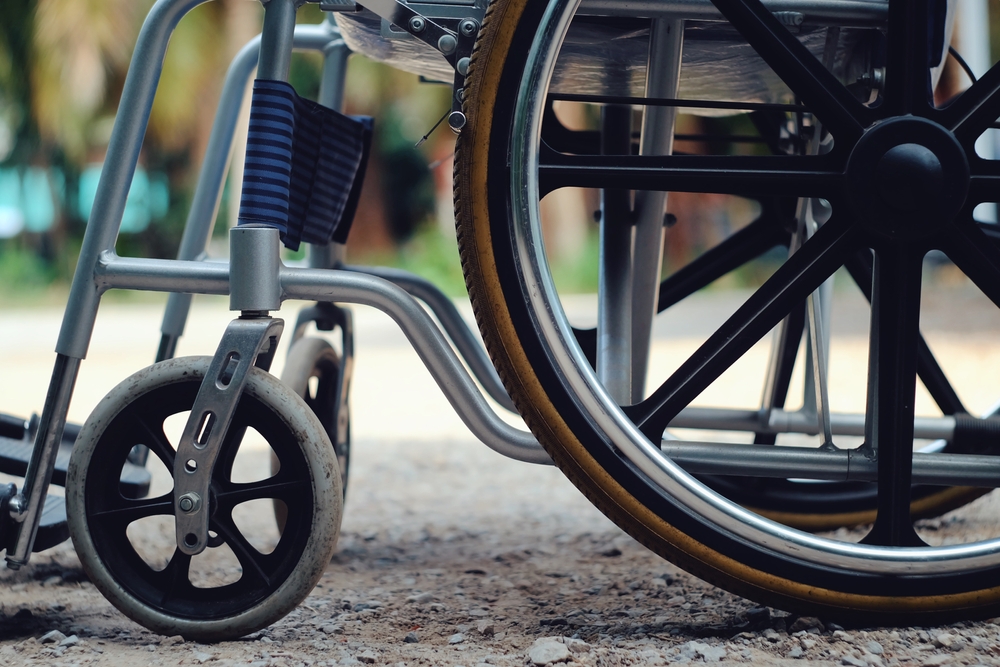
The Hidden Dangers of Wheelchair Tip Over Accidents
Imagine trying to navigate a ramp, only for your wheelchair to suddenly tip over, sending you to the ground. The pain, the shock, the fear – it can all happen in an instant. Unfortunately, wheelchair tip over accidents are more common than many realize, and they often occur because of unsafe conditions, poor design, or a failure to meet accessibility standards.
For individuals with mobility impairments, public and private spaces that aren't properly maintained or built can pose serious hazards. When those responsible fail to uphold safety and accessibility requirements, the consequences can be devastating – physically, emotionally, and financially.
If you or a loved one has been injured in a wheelchair tip over accident in New Jersey, you may have the right to seek compensation. This guide will walk you through your legal options, how to identify who may be responsible, and the steps you can take to protect yourself.
Common Causes of Wheelchair Tip Over Accidents
Wheelchair users rely on safe, accessible environments to navigate daily life. When that trust is broken – by a cracked sidewalk, a poorly designed ramp, or a defective wheelchair – the results can be traumatic.
Here are some of the most common causes of wheelchair tip over incidents in New Jersey:
Unsafe Ramps and Walkways
- Ramps that are too steep or lack handrails
- Cracked or uneven sidewalks
- Missing curb cuts or improperly designed entry points
- Inadequate lighting that makes it difficult to spot hazards
- Poorly maintained public transit platforms
Defective Wheelchairs or Equipment
- Faulty brakes or unstable bases
- Poor weight distribution or improper assembly
- Malfunctioning mechanical or electrical components
- Manufacturers failing to issue recalls or notify users of safety issues
Negligence in Public and Private Spaces
- Businesses that fail to maintain accessible entrances
- Nursing homes that don’t assist residents safely during transfers
- Public transportation providers that don’t secure wheelchairs properly
- Venues, schools, and workplaces that overlook inclusive design
Wheelchair tipping over accidents are rarely just “accidents.” In many cases, they result from someone else’s failure to meet basic safety and accessibility obligations.
Legal Rights & Liability in a Wheelchair Tip Over Accident
After a wheelchair tip over, understanding who may be legally responsible is essential to protecting your rights and seeking fair compensation. These incidents are often the result of someone’s failure to meet their legal obligations – whether it's a business that ignored safety standards, a manufacturer that sold a defective product, or a public agency that neglected proper maintenance.
Determining Liability
In New Jersey, liability for a wheelchair accident can rest with one or more parties, depending on the circumstances. Property owners, businesses, product manufacturers, healthcare facilities, and even public entities may be held accountable when their actions – or inaction – contribute to unsafe conditions.
Establishing liability involves showing that the at-fault party owed you a duty of care, failed to meet that duty, and caused harm as a result. Whether the issue involves poor maintenance, improper supervision, or faulty equipment, an attorney can help you gather the evidence needed to prove your case.
Special Rules for Claims Against Government Entities
If your accident occurred on public property – such as a city sidewalk, public transportation platform, or government-owned building – your claim may fall under the New Jersey Tort Claims Act (NJTCA). This law imposes specific procedures and strict deadlines for suing public entities.
Most importantly, you must file a formal notice of claim within 90 days of the incident. Failing to do so can bar you from recovering damages, even if the government agency was clearly at fault. Because of these time-sensitive requirements, it's critical to consult a lawyer as soon as possible if a government entity may be involved.
Legal Protections Under New Jersey Law
New Jersey law offers strong protections for injury victims through both premises liability and product liability principles. These laws allow you to pursue compensation when unsafe property conditions or defective equipment contribute to your injury. Additionally, the state's comparative negligence rules mean you may still recover damages even if you were partially at fault – so long as you were not more than 50% responsible.
Navigating these legal standards can be complex, especially when multiple parties are involved. An experienced New Jersey injury attorney can help you make sense of your options, build a strong claim, and move forward with confidence.
Proving Negligence & Seeking Compensation
To recover compensation after a wheelchair tip over accident, you must show that someone else’s negligence directly caused your injuries. This means demonstrating that the at-fault party had a legal responsibility to provide a safe environment or product, failed to meet that responsibility, and caused harm as a result.
Building a Strong Case
Proving negligence requires clear, compelling evidence. A personal injury attorney can help you gather and present the documentation needed to support your claim, which may include:
- Medical Records: These help connect your injuries to the accident and show the extent of your treatment and recovery.
- Photographs or Videos: Visual evidence of unsafe conditions or damage to your wheelchair can strengthen your claim.
- Witness Statements: Firsthand accounts from people who saw what happened can reinforce your version of events.
- Expert Testimony: In some cases, specialists in accessibility standards, engineering, or product design may be called on to explain what went wrong and why it could have been prevented.
What Compensation Can Cover
If your claim is successful, you may be entitled to compensation for both financial and personal losses. These may include:
- Medical expenses (past and future)
- Lost income and reduced earning potential
- Pain and suffering
- Emotional distress
- Long-term care needs or home modifications
In severe cases, where gross negligence or reckless disregard is involved, punitive damages may also be awarded to hold wrongdoers accountable and prevent similar harm to others.
Act Within the Legal Deadline
In New Jersey, most personal injury claims must be filed within two years from the date of the accident, under N.J.S.A. 2A:14-2. However, if a government entity is involved, you typically have just 90 days to file a notice of claim under the New Jersey Tort Claims Act.
Acting quickly ensures that your rights are preserved and that valuable evidence isn’t lost.
Steps to Take After a Wheelchair Tip Over Accident
The moments after an accident can be overwhelming, but the steps you take next can make a big difference in your legal case. Here's what you can do to protect your health and strengthen your claim:
- Seek medical attention immediately. Even if you feel okay, injuries can worsen over time.
- Report the incident. Notify the property owner, manager, or relevant authority.
- Take photographs. Document the area, your injuries, and any hazards or lack of accessibility features.
- Get witness information. Names and contact details can be valuable if others saw what happened.
- Save all medical records and receipts. These support your claim for damages.
- Preserve the wheelchair. If you suspect a defect, do not repair or alter it – keep it in its post-accident condition.
- Speak with a personal injury attorney. An experienced lawyer can guide you through the legal process and protect your rights from the start.
How a Lawyer Can Help You Move Forward
A skilled personal injury attorney can be your strongest advocate after a wheelchair tip over accident. Your lawyer can:
- Investigate the cause of the accident and identify all potentially liable parties
- Review building codes, accessibility standards, and maintenance records
- Work with expert witnesses to support your claim
- Handle communications with insurance companies and opposing counsel
- Calculate your damages and negotiate a fair settlement
- File a lawsuit and represent you in court if needed
They can also help you explore whether your case qualifies under federal ADA regulations or state product liability laws, depending on the circumstances.
Take the First Step Toward Justice – Contact The Law Offices of Harold J. Gerr
If you or someone you love has been injured in a wheelchair tip over accident in New Jersey, don’t navigate the legal system alone. At The Law Offices of Harold J. Gerr, we are committed to helping injured individuals and their families pursue justice, protect their rights, and obtain the compensation they deserve.
We proudly serve clients in New Brunswick, Edison, Trenton, Princeton, and throughout New Jersey. Our legal team understands the challenges individuals with disabilities face and is prepared to stand by your side every step of the way.
Call us today at 732-537-8570 or fill out our online contact form to schedule a free consultation.
By taking action, you're not just standing up for yourself – you’re helping promote accessibility, safety, and accountability for everyone.
Disclaimer: This article is for informational purposes only and does not constitute legal advice. Reading this article does not create an attorney-client relationship. If you need legal assistance, please contact The Law Offices of Harold J. Gerr directly.









